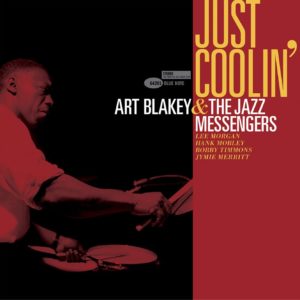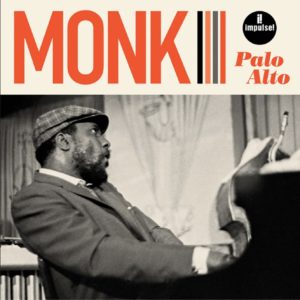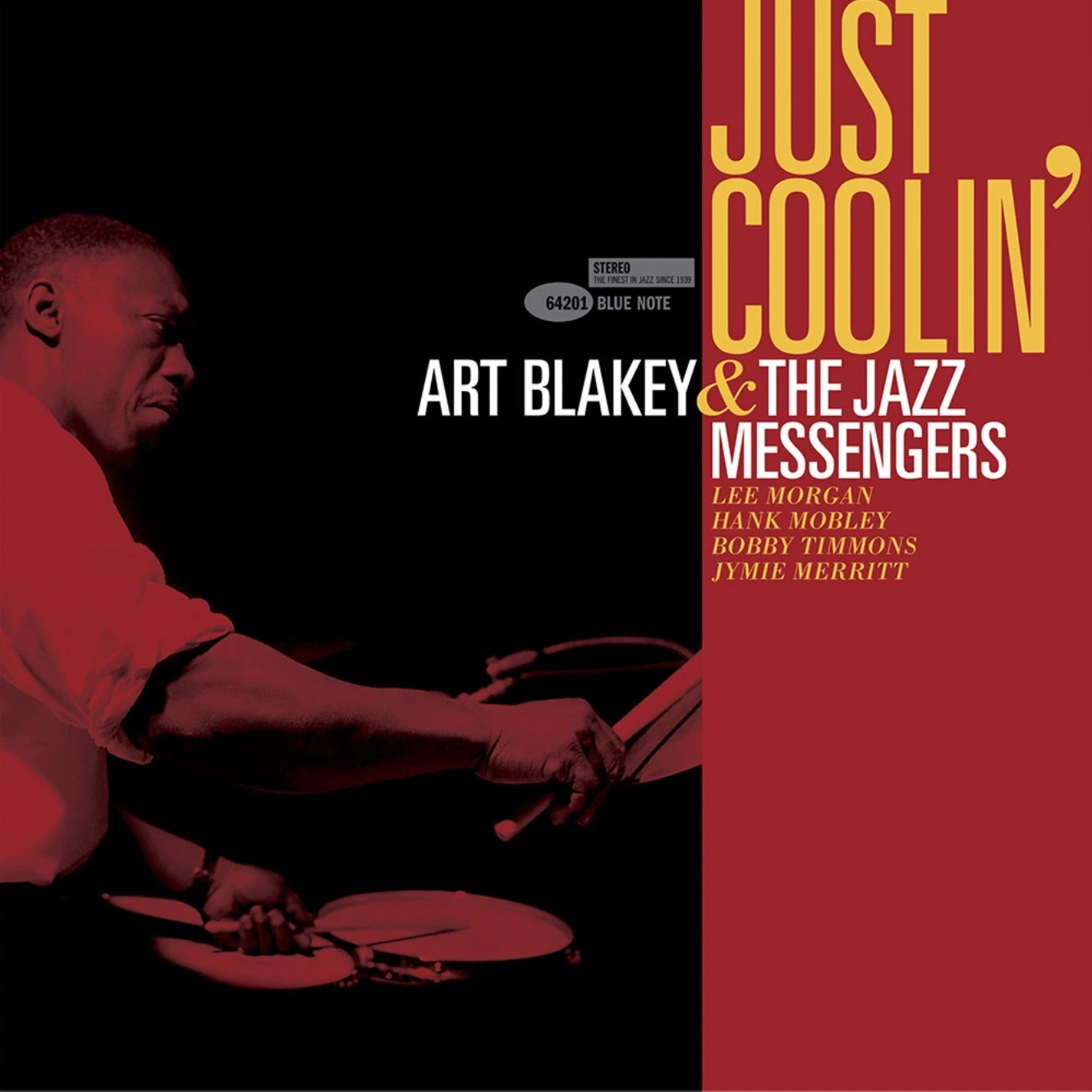Art Blakey & the Jazz Messengers
Just Coolin’
BLUE NOTE
+
Thelonious Monk
Palo Alto
IMPULSE!/LEGACY
8/10
Recorded a decade apart, as famed and beloved in their MIA status as they are now, Art Blakey & the Jazz Messengers’ Just Coolin’ and Thelonious Monk’s live record Palo Alto have forever been deeply etched into the lost tablet of jazz’s future-forward Ten Commandments. Though less of a mystery now that both have finally been released, neither of these giant steps in advancing jazz’s agenda is any less mysterious or magical just because they are available at large.
For drummer-collaborator Blakey and his always shifting Jazz Messengers and mad pianist/composer Monk, bop was but a mythic rhythmic frame—one of their own (and each’s own) design. What these two leaders did when coloring within or without those squiggly lines is what set them apart from the fray in the first place.
Blakey was truly riding high at that point, having released the now-classic blue bopping Moanin’ just months before recording Coolin’s fast and furious session in March 1959 in Rudy Van Gelder’s parlor studio in Hackensack, NJ. But weeks before, this same edition of the Messengers (a short-lived lineup of trumpeter Lee Morgan, tenor saxophonist Hank Mobley, pianist Bobby Timmons, bassist Jymie Merritt) taped their more modern, soul vibing live album At the Jazz Corner of the World at Birdland. Not so very long after all this, Blakey, his Jazz Messengers, and Monk would record separate elements of the daring soundtrack to Les Liaisons Dangereuses for a 1960 release.
Though they were Messengers for barely more than a minute, Morgan and Mobley together—playing the choicest of the saxophonist’s then-new songs “Hipsippy Blues,” “M&M,” and “Just Coolin’”—sound joined at the (disjointed) hip, and ready (but not steadied) for Blakey’s hyperkinetic rhythms. Paced for heart-racing intensity, but not without the simmering soul of Timmons’ graceful piano at their heart, “Quick Trick” and “Jimerick” blast forth like foxes gaining the lead in a harried hunt. With such speed as a guide, this precision-driven quintet’s blues sensibilities are heightened, nuanced, and minutely detailed to the point of being downright discerning. They’re snipers; not machine gunners, but shooting with the sort of pent-up emotion you’d get from the slowest, most ruminative vocalists. Considering the rapid-fire sashay and gutsiness of this quintet in hard bop (but soulfully grooving) mode, Just Coolin’ could have turned some heads on to modern jazz’s fresh feel even sooner had this been released in its time.
 Palo Alto also features a leader in his aesthetic prime (though in lousy health, Monk had been on the cover of Time), and a mightily in-tune, longtime live ensemble (tenor saxophonist Charlie Rouse, bassist Larry Gales, drummer Ben Riley) at the height of their powers and devotion to their boss, the heralded genius that was Thelonious Monk. But the long lost Palo Alto live sessions of 1968 were recorded in extraordinarily different circumstances. This was the Civil Rights Movement and the anti-Vietnam War struggle in full flower, and a time of grieving for lost leaders such as Martin Luther King, Jr. Into this, Monk was summoned by a Californian high schooler in a Black section of his city to play in his student auditorium. The band, sorely in need of cash, did it with pleasure, and was recorded by Palo Alto High School’s janitor, only to have the tape go missing until now.
Palo Alto also features a leader in his aesthetic prime (though in lousy health, Monk had been on the cover of Time), and a mightily in-tune, longtime live ensemble (tenor saxophonist Charlie Rouse, bassist Larry Gales, drummer Ben Riley) at the height of their powers and devotion to their boss, the heralded genius that was Thelonious Monk. But the long lost Palo Alto live sessions of 1968 were recorded in extraordinarily different circumstances. This was the Civil Rights Movement and the anti-Vietnam War struggle in full flower, and a time of grieving for lost leaders such as Martin Luther King, Jr. Into this, Monk was summoned by a Californian high schooler in a Black section of his city to play in his student auditorium. The band, sorely in need of cash, did it with pleasure, and was recorded by Palo Alto High School’s janitor, only to have the tape go missing until now.
Playing a set of opulently oblong Monk classics (and the equally oddball solo piano take on Rudy Vallee’s “I Love You Sweetheart of All of My Dreams”) that they’d jammed countless times, the band sounds hungry and emboldened on this weirdly pristine Palo Alto tape that forever sat in somebody’s basement. Featuring truly majestic versions of “Well, You Needn’t” and “Ruby, My Dear,” it is an elongated, mirthful rendition of “Blue Monk” where everything truly comes together—especially the always-muscular Rouse at his most wiry, and a bright-eyed Monk riding the 88s like a bucking stallion.
If you’re looking for new takes on old history, these two recordings sound fresher than any jazz —hell, most any music—recorded in 2020.









